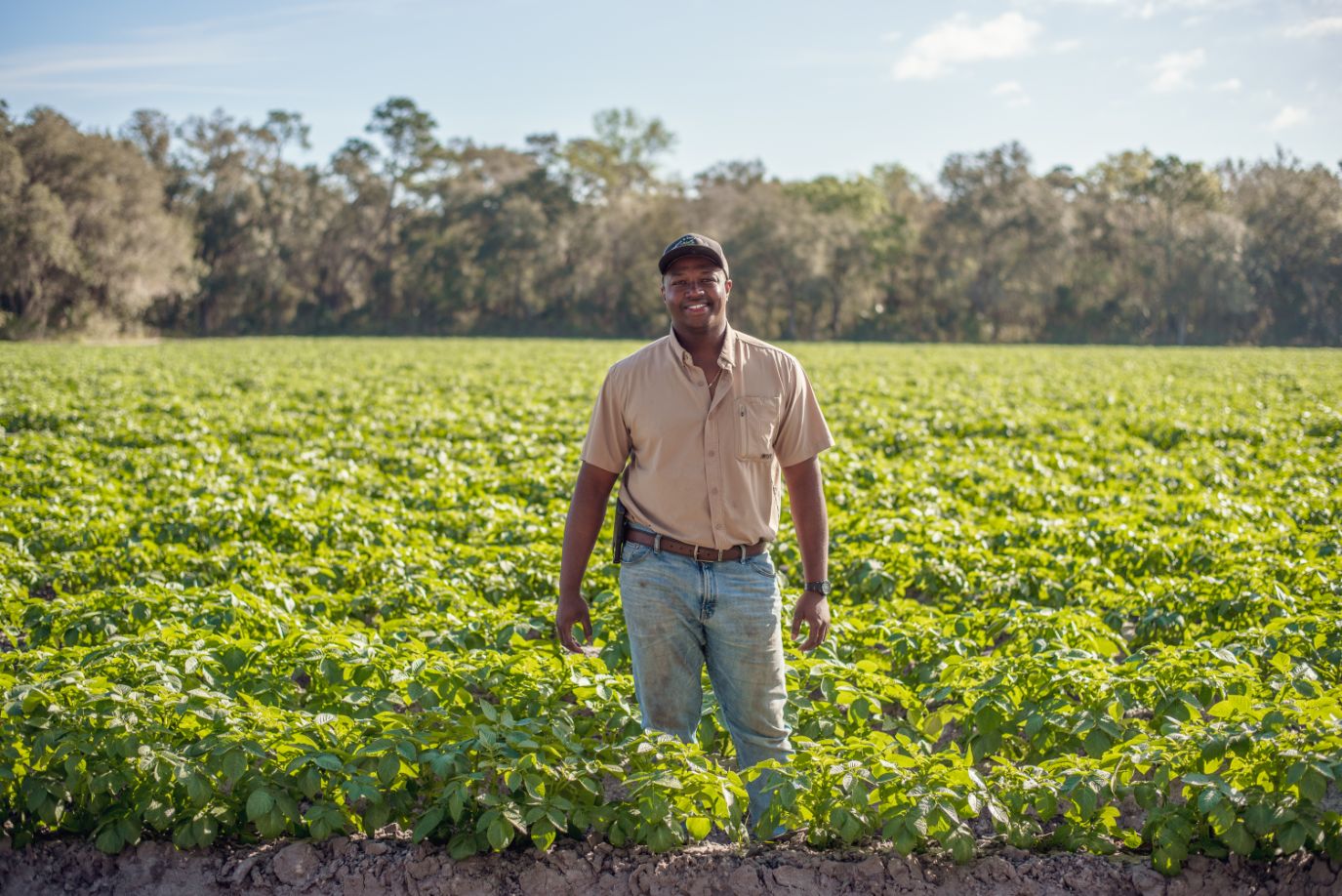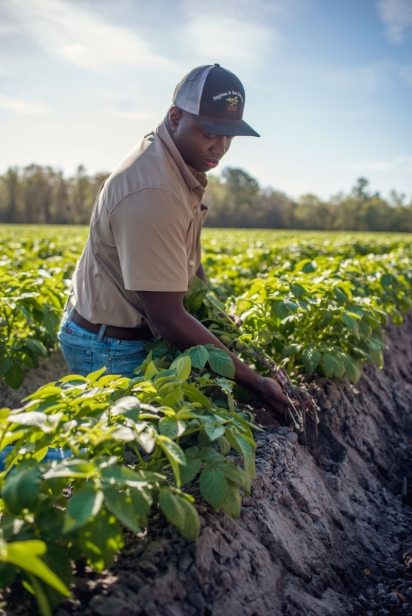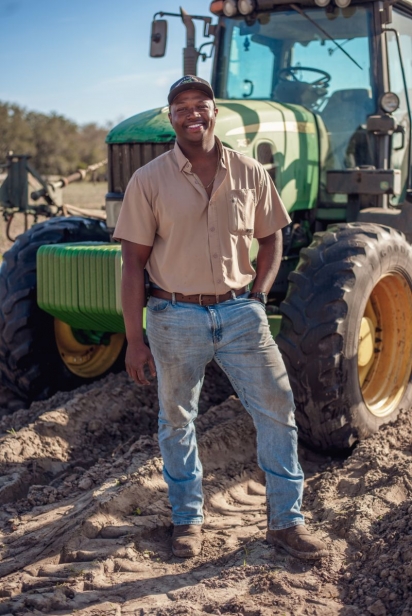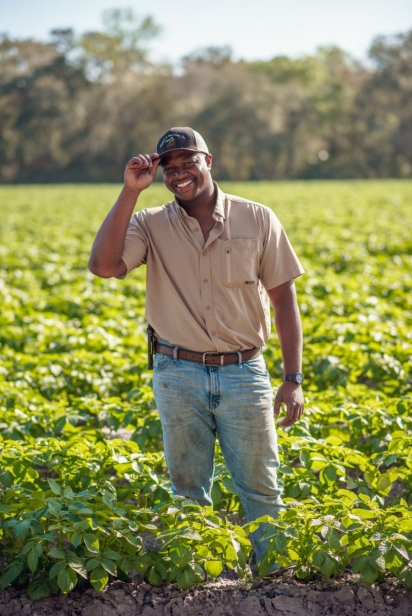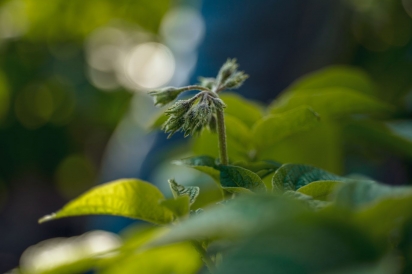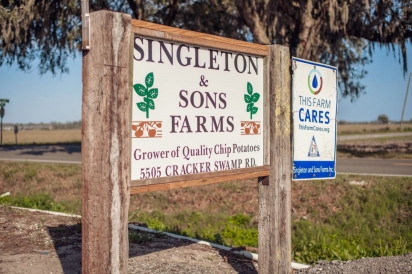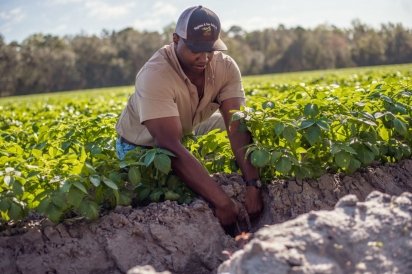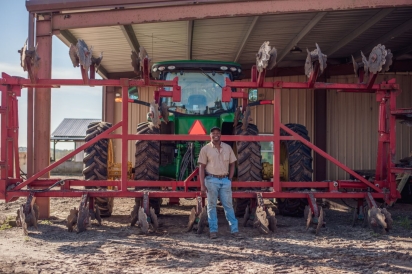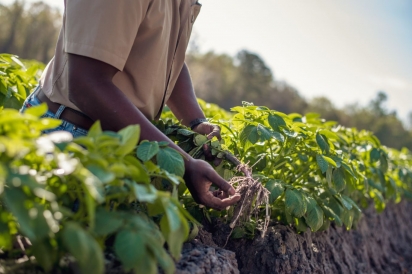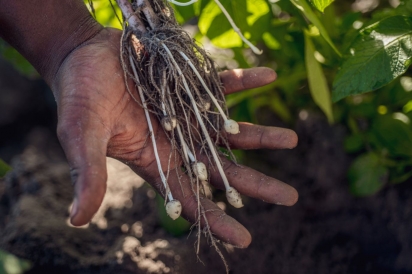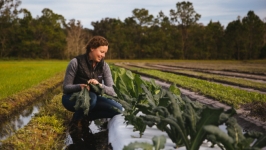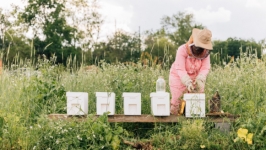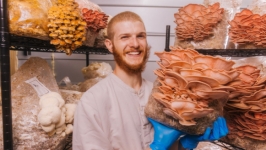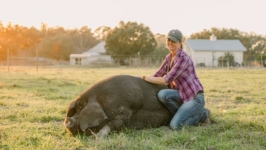Taking Root in the Family Business
According to recent Census of Agriculture data, the average age of farmers in the U.S. is nearly 60 years old. With about one-third of those farmers over the retirement age of 65, it is not always guaranteed that the next generation will take over the family operation. Not so in the case of Singleton & Sons Farms in East Palatka and Hastings, where Stephen Singleton is eager to contribute to the family business.
Singleton’s grandfather James started farming late in life after a career as a teacher. He established a contract to grow chip potatoes for Frito Lay North America, which the farm maintains today. James’s son Steve, Stephen’s father, began working on the farm as a teenager. Now, as the third generation dedicated to farming, Stephen benefits from his father’s 60-plus years of experience improving productivity along the way through efficient use of resources and attention to detail.
Stephen pursued a successful college career at the University of Florida and graduated with a degree in soil and water sciences and a minor in agricultural policy. He served as the Director of Student Government, Ambassador for the College of Agricultural and Life Sciences and chaplain/member of AGR fraternity. After college, Stephen started his career with Farm Credit, a nationwide network of customer-owned financial institutions providing loans and other financial services. Although he was still serving the farming community, the job did not provide him enough opportunity to get back to his farming roots. Then in October 2022, Stephen returned to the family farm full-time. “I knew I eventually wanted to move back home and have some part in the family operation,” Stephen says. “I just was never sure to what extent I would be involved.”
Growing up on the family farm allowed Stephen to observe firsthand how his father gleaned wisdom from everyday challenges such as increased fertilizer prices, droughts, hurricanes, insect acclimation to chemical controls, increased regulatory control, depletion of soil health and more. He is excited about building on that foundation to launch new endeavors to try growing different crops on the family land.
After reviewing the results of sweet corn trials at the UF/ IFAS Hastings Agriculture Extension Center for the last four years, testing approximately 8 different varieties of bi-color super sweet corn, Stephen decided to plant one of those varieties called Obsession. It has been a consistently high yielding variety with excellent taste and tenderness. Along with UF/IFAS Hastings Farm Manager Scott Chambers, I worked with Stephen as he planted seed in two acres. Stephen was excited about his first opportunity to really invest in the ground. It had been a wet summer, so he and his dad worked strategically to determine when it was dry enough to plant the seed. They determined mid-September 2022 was the best time and Stephen planted sweet corn on his dad’s potato ground to experiment with a new crop for the family.
Between Hurricanes Ian and Nicole, Stephen was faced with some very challenging scenarios, but he had seen his father weather storms in the past. Hurricane Ian brought an unexpected 7 inches of rainfall to the sweet corn field in a 24-hour period. The elder Singleton calmly waited for the fields to dry out and worked the rows to provide enough aeration for the root system to breathe. Most of the nitrogen, which plants use for food, had washed away with the excessive rains, so the two had to determine an appropriate fertilization scheme moving forward. A short week later, Nicole brushed through the area as a tropical storm and brought a couple more inches of rain to the already saturated soil.
Despite these challenges Stephen successfully harvested and sold nearly 25 crates of sweet corn during his first season. He’s committed to at least three years of a fall sweet corn crop to work out all the bugs, mainly corn earworms, and ultimately contribute to his family legacy. “Dad always told me to find something that I enjoy getting up and doing every morning,” says Stephen. “He never forced me to fall in love with production agriculture, but I guess I did.”


